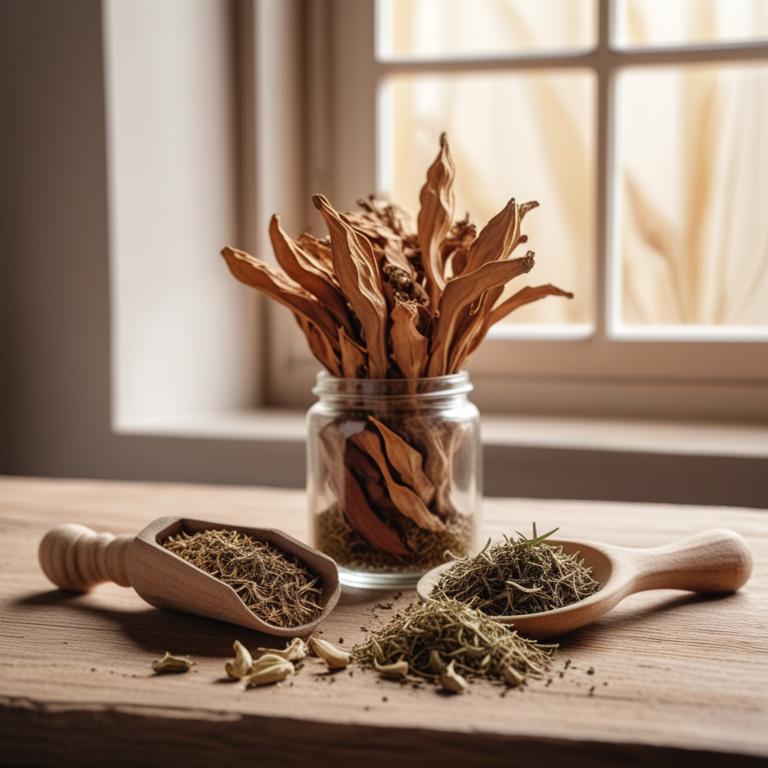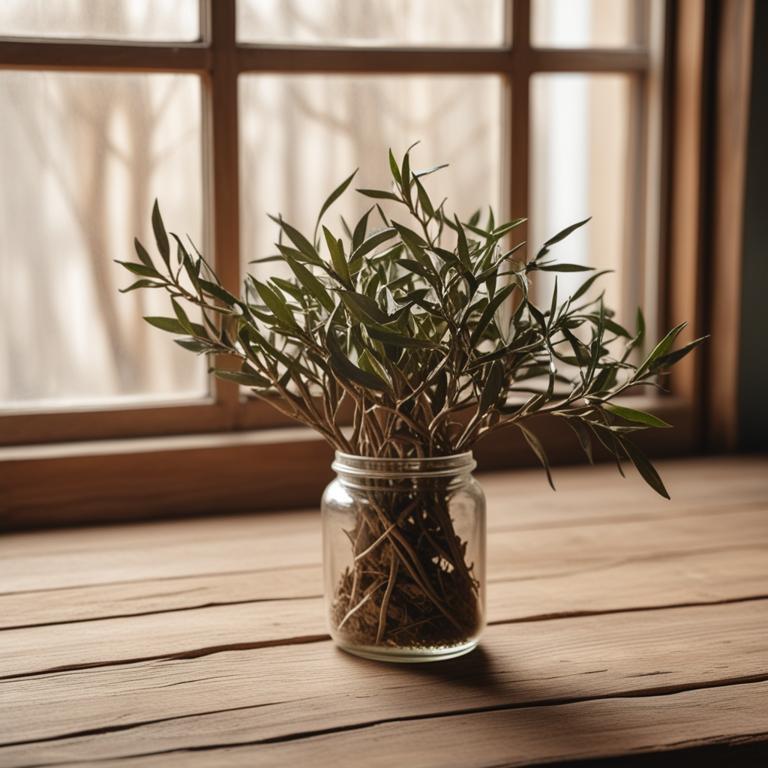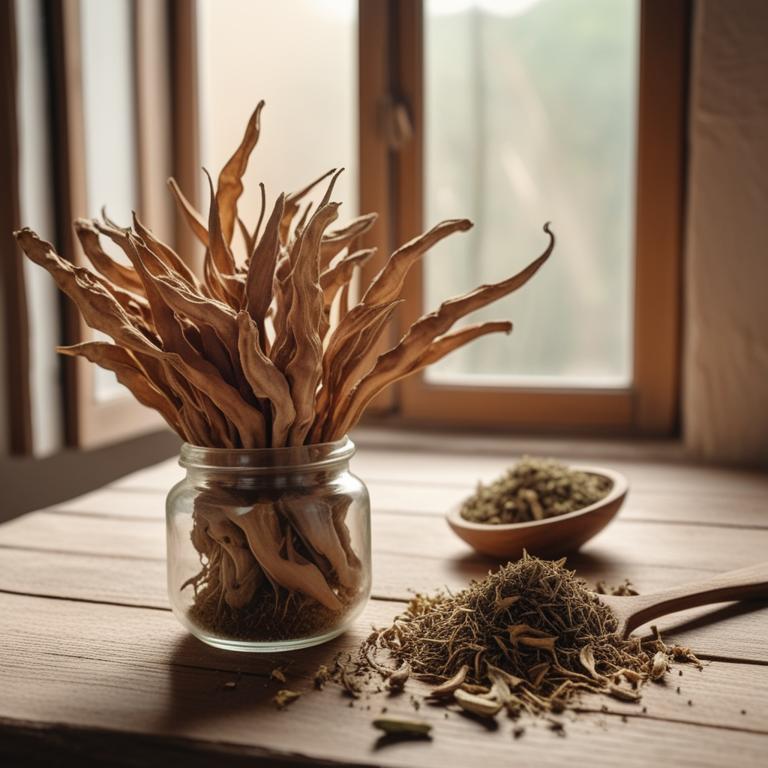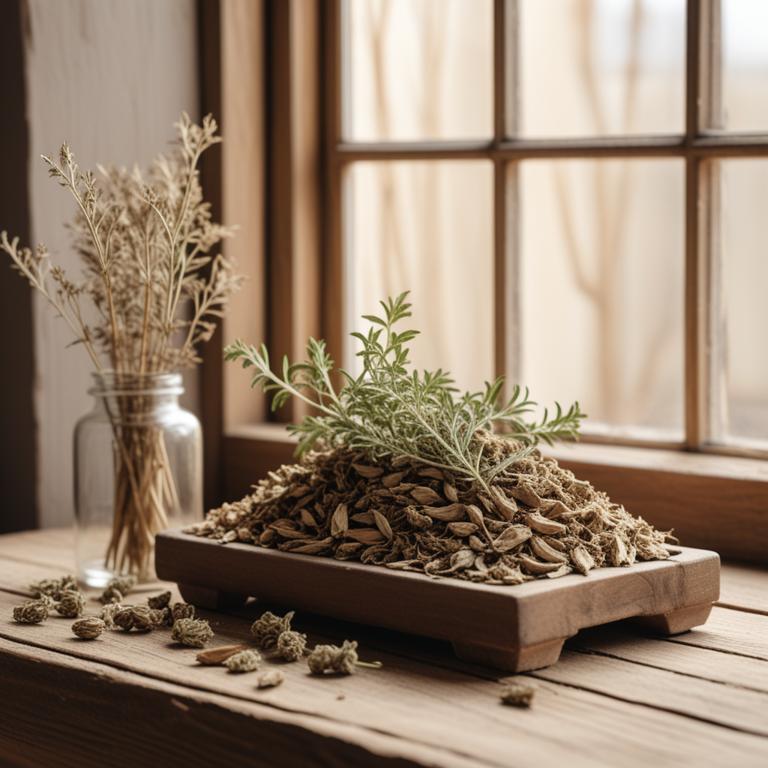Updated: Dec 1, 2024
Varicose Veins: Causes, Medicinal Herbs, and Effective Herbal Preparations
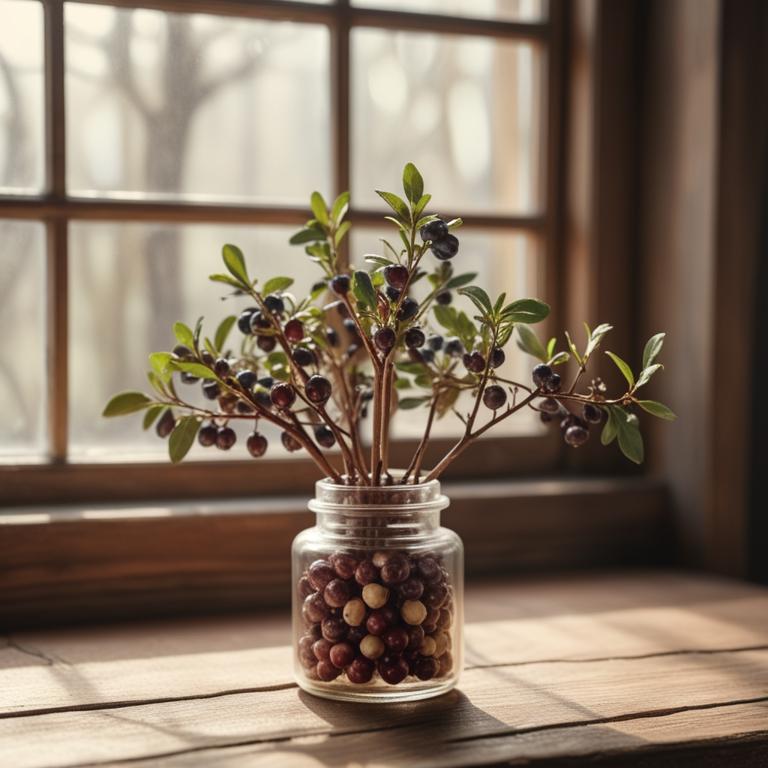
Varicose veins are swollen and twisted veins that appear on the legs and feet.
They can be painful and make it hard to walk or stand for long periods. In severe cases, they can cause ulcers and bleeding. Varicose veins happen when the valves in the veins don't work properly, allowing blood to flow backward and put pressure on the veins. This condition is often caused by a combination of factors, including genetics, age, and lifestyle. Prolonged standing, obesity, and poor circulation can also contribute to the development of varicose veins.
Additionally, women who have had multiple pregnancies may experience varicose veins due to the increased pressure on their veins. Fortunately, there are some natural remedies that can help alleviate the symptoms of varicose veins. Herbs like horse chestnut, butcher's broom, and grape seed extract have anti-inflammatory properties that can help reduce swelling and improve circulation. Butcher's broom, in particular, has been shown to strengthen vein walls and improve blood flow. You can use these herbs in various forms to get relief from varicose veins. For example, you can drink tea made from horse chestnut or grape seed extract to help reduce swelling and improve circulation.
You can also take supplements or apply topical creams or ointments made from butcher's broom to help strengthen vein walls and reduce pain.
Table of Contents
- What are the root causes of varicose veins?
- What benefits can be derived from using herbs for varicose veins?
- What are the principal medicinal herbs that help with varicose veins?
- What are the most popular herbal remedies for varicose veins?
- What herbs should you avoid if you're prone to varicose veins?
- FAQ
What are the root causes of varicose veins?
The main causes of varicose veins are a combination of factors that put pressure on the veins and cause them to become weak and swollen.
Genetics play a role because if your parents have varicose veins, you're more likely to develop them too. This is because the way your veins are formed and function is partially determined by your genes. Prolonged sitting is another common cause. When you sit for a long time, your legs are below your heart, which makes it harder for blood to flow back to your heart. This can cause blood to pool in the veins, leading to swelling and varicose veins.
Pregnancy is also a risk factor because the growing uterus puts pressure on the veins in the legs. This can cause them to become weak and swollen. Age is another cause, as the veins become weaker and less flexible with time. This can cause them to become twisted and varicose. Obesity is also a risk factor because excess weight puts additional pressure on the veins in the legs, making it harder for blood to flow back to the heart.
This can cause the veins to become weak and swollen, leading to varicose veins.
What benefits can be derived from using herbs for varicose veins?
Using herbs to help with varicose veins can be really beneficial.
For one, they can improve blood circulation, which is the main issue with varicose veins. These herbs can help the blood flow more smoothly, reducing the pressure on the veins and making them less swollen.
This can also help to reduce the pain and discomfort associated with varicose veins. Additionally, some herbs have anti-inflammatory properties, which can help to reduce swelling and promote healing in the affected area. Some herbs can also help to strengthen the walls of the veins, making them less prone to damage and further complications.
By using these herbs, people can also reduce their reliance on medication and surgery, which can be invasive and expensive.
What are the principal medicinal herbs that help with varicose veins?
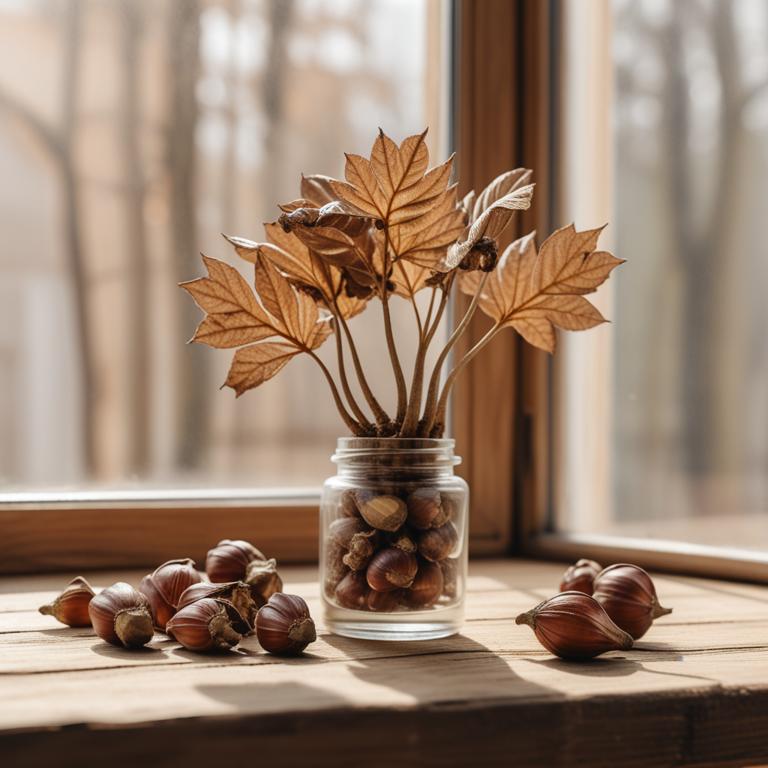
Herbs can be a great help in managing varicose veins.
Aesculus hippocastanum, also known as horse chestnut, contains a compound called escin, which helps to strengthen blood vessel walls and reduce swelling in the legs. This makes it easier for blood to flow and reduces the risk of varicose veins getting worse. Vitis vinifera, or grape seed extract, has antioxidant properties that help to protect the blood vessels from damage caused by free radicals. This can help to slow down the development of varicose veins and other vein problems. Grape seed extract also has anti-inflammatory properties, which can help to reduce swelling and pain associated with varicose veins. Ginkgo biloba is known for its ability to improve blood flow and reduce inflammation. It can help to relax the blood vessels and improve circulation, which can help to reduce the symptoms of varicose veins.
Ginkgo biloba also has antioxidant properties that can help to protect the blood vessels from damage. Hamamelis virginiana, or witch hazel, has anti-inflammatory properties that can help to reduce swelling and pain associated with varicose veins. It can also help to improve circulation and reduce the risk of blood clots forming. Witch hazel has been used for centuries to treat a variety of skin and vein problems. Ruscus aculeatus, or butchers broom, contains a compound called ruscogenin, which can help to improve circulation and reduce swelling in the legs. It can also help to strengthen blood vessel walls and reduce the risk of varicose veins getting worse. Butchers broom has been used for centuries to treat a variety of vein and circulatory problems. These herbs can be used in various forms, such as supplements, teas, or creams, to help manage varicose veins.
However, it's always best to consult with a healthcare professional before using any new remedies, especially if you have a pre-existing medical condition or are taking medications.
What are the most popular herbal remedies for varicose veins?
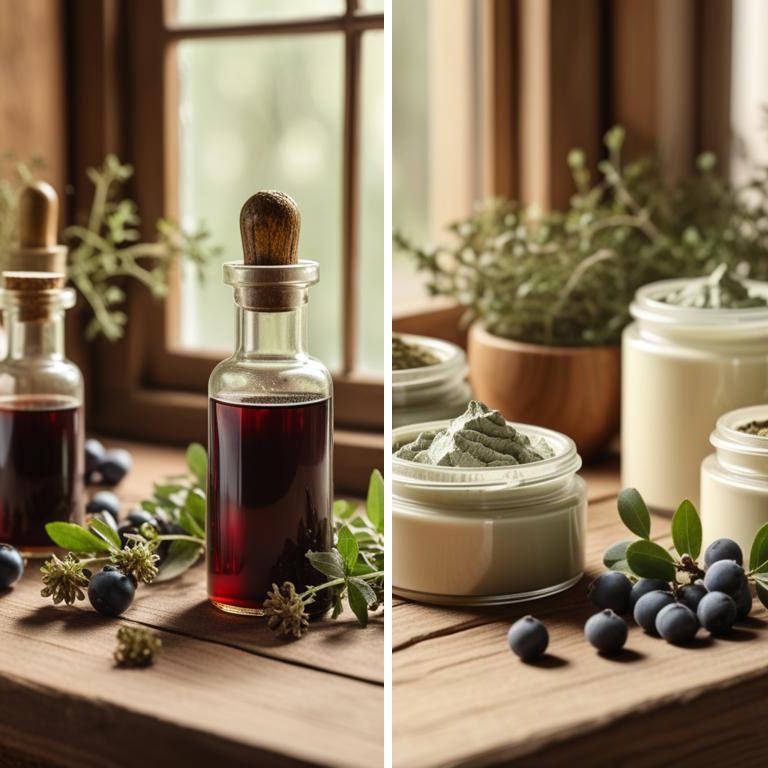
Herbal preparations can be a helpful way to manage varicose veins.
A decoction is a liquid preparation made by boiling herbs in water, which can be applied topically to the affected area to help reduce swelling and improve circulation. This can be especially helpful for people who have trouble standing for long periods of time. A tincture is a concentrated liquid solution that can be taken orally to help improve blood flow and reduce inflammation.
Capsules, on the other hand, contain dried and powdered herbs that can be taken as a supplement to help strengthen veins and improve overall circulation. An infusion is a liquid preparation made by steeping herbs in hot water, which can be consumed to help reduce stress and promote relaxation - stress is a common trigger for varicose veins. A cream can be applied topically to help reduce inflammation and promote healing, and may also contain ingredients like witch hazel or horse chestnut that have been shown to be beneficial for varicose veins.
These preparations can be used individually or in combination to help manage symptoms and improve overall health.
Additional Resources:
- 11 herbal teas for varicose veins
- 9 herbal tinctures for varicose veins
- 8 herbal creams for varicose veins
What herbs should you avoid if you're prone to varicose veins?
If you have varicose veins, it's best to be cautious with certain herbs.
Glycyrrhiza glabra, also known as licorice root, can cause blood pressure to rise, which may worsen varicose veins. This is because it affects the body's natural balance of fluids and minerals, leading to fluid retention and increased pressure on the veins. Panax ginseng, commonly known as ginseng, can also be a problem. It increases blood flow and pressure, which may put extra strain on varicose veins. This can cause them to become more painful and uncomfortable.
Paeonia lactiflora, or peony root, may cause blood to flow more easily, but it can also cause the blood vessels to become more relaxed. This can make varicose veins worse by allowing them to become even more stretched and twisted. Angelica sinensis, known as dong quai, can cause blood to flow more freely, which may not be a good thing if you have varicose veins. This can put more pressure on the veins and make them more painful. Cinchona officinalis, or cinchona bark, contains compounds that can affect blood pressure and flow.
This can cause varicose veins to become worse, especially if you have high blood pressure or other conditions that affect the blood vessels.
FAQ
Are there any specific herbs that can prevent varicose veins?
Horsetail and butcher's broom are two herbs that may help prevent varicose veins.
They contain compounds that can strengthen blood vessel walls and improve circulation. Horsetail has been used to treat vein problems for centuries, while butcher's broom is known for its anti-inflammatory properties.
These herbs may help reduce swelling and improve vein health.
Is it safe to use herbal remedies for varicose veins during pregnancy?
During pregnancy, it's best to be cautious with herbal remedies for varicose veins.
Some herbs, like horse chestnut and butcher's broom, may help reduce swelling and pain, but their safety for pregnant women is not well understood.
It's best to avoid them until more research is done, to be on the safe side.
Are there any herbs that can reduce the frequency of varicose veins?
Some herbs like horse chestnut and butcher's broom may help reduce the frequency of varicose veins.
They work by improving blood flow and strengthening vein walls. Horse chestnut contains a compound called escin, which helps reduce swelling and inflammation in veins.
Butcher's broom, on the other hand, helps improve circulation and reduce fluid buildup in the legs.
Related Articles
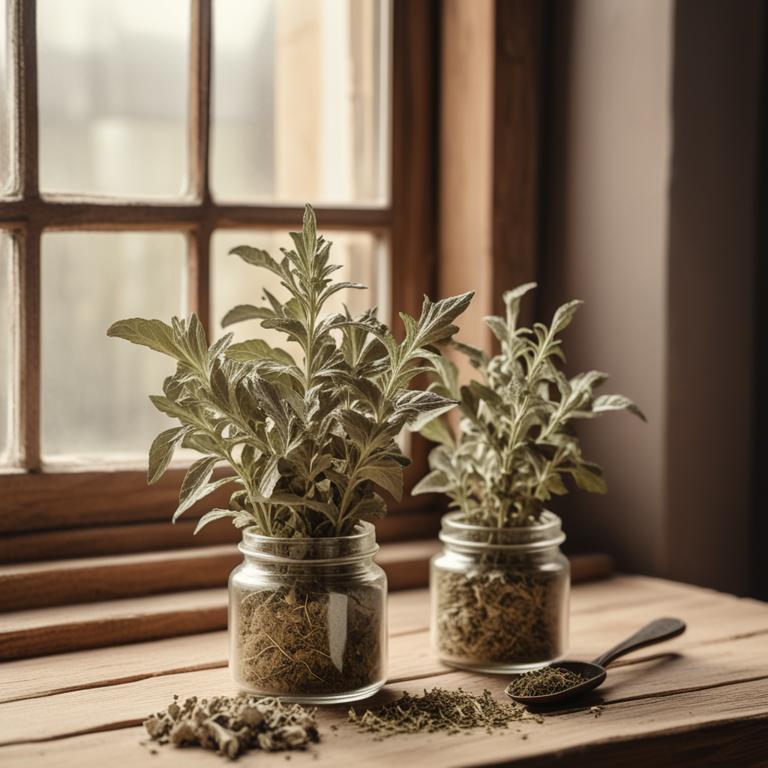
Natural Treatments for Congestive Heart Failure: Medicinal Herbs and Herbal Preparations
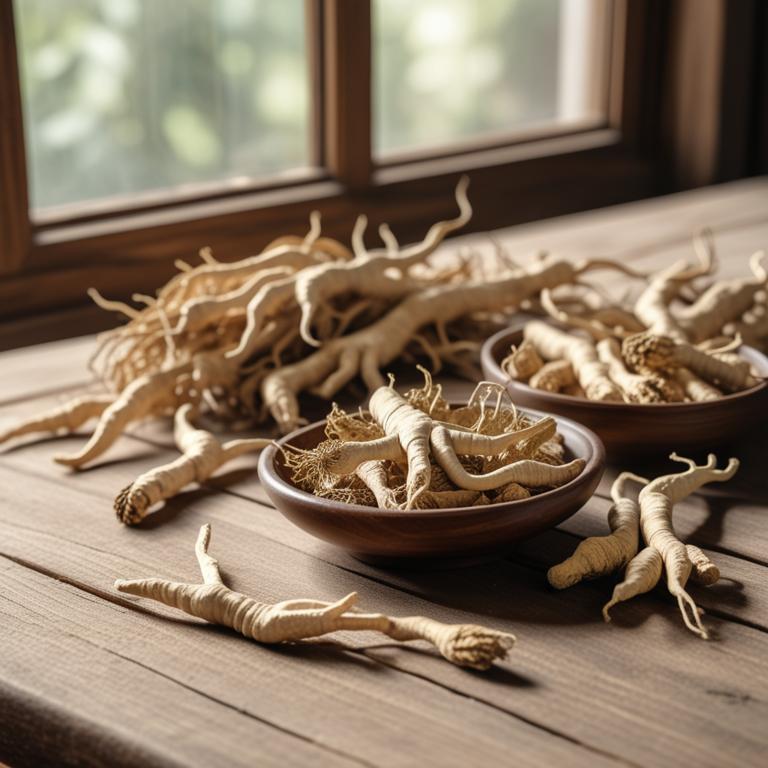
Overcoming Low Blood Pressure: Causes, Herbal Remedies, and Effective Preparations
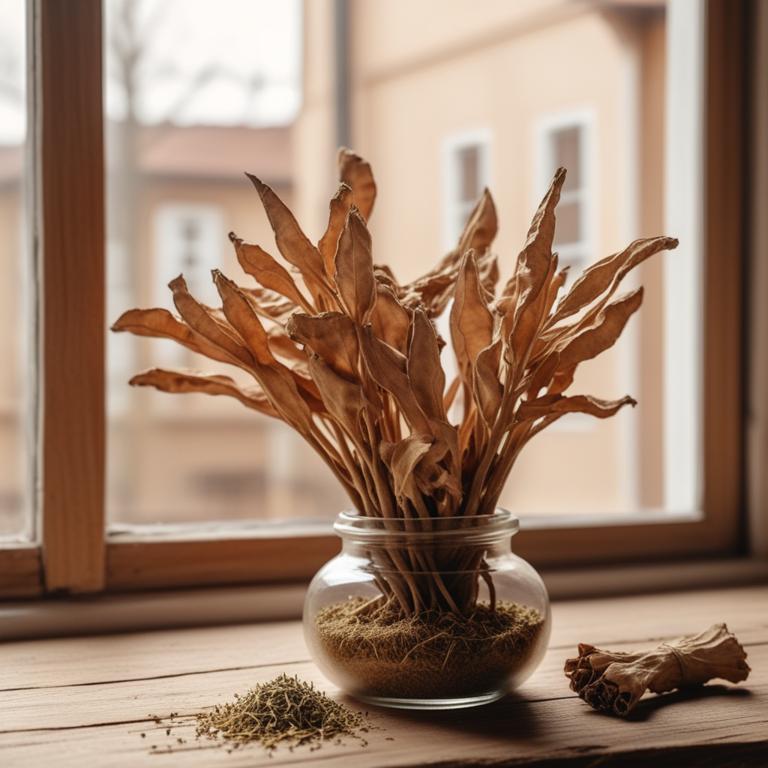
Angina and Herbal Medicine: Causes, Medicinal Herbs, and Preparations
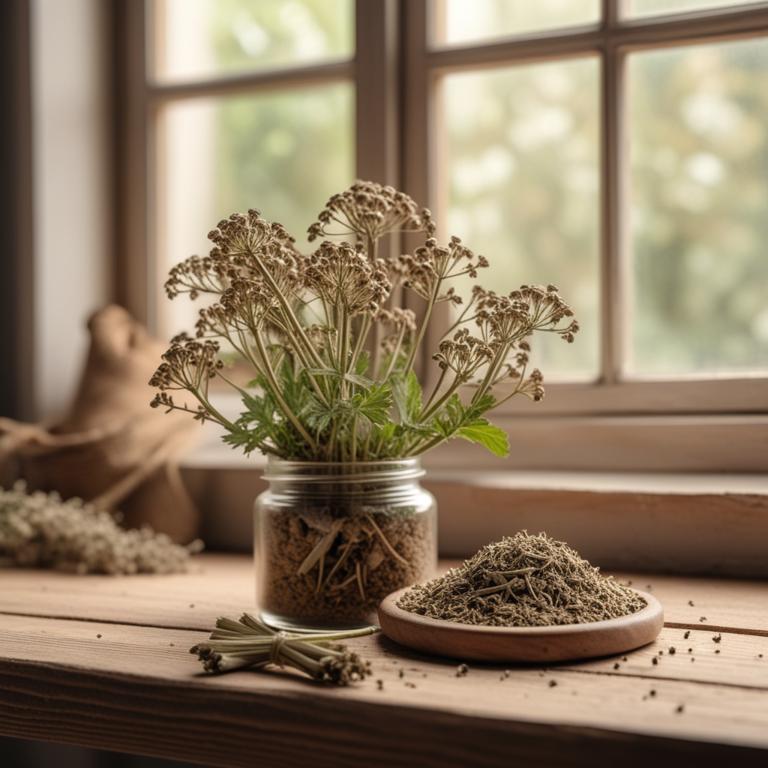
Palpitation: Understanding Its Causes and Natural Medicinal Herbs
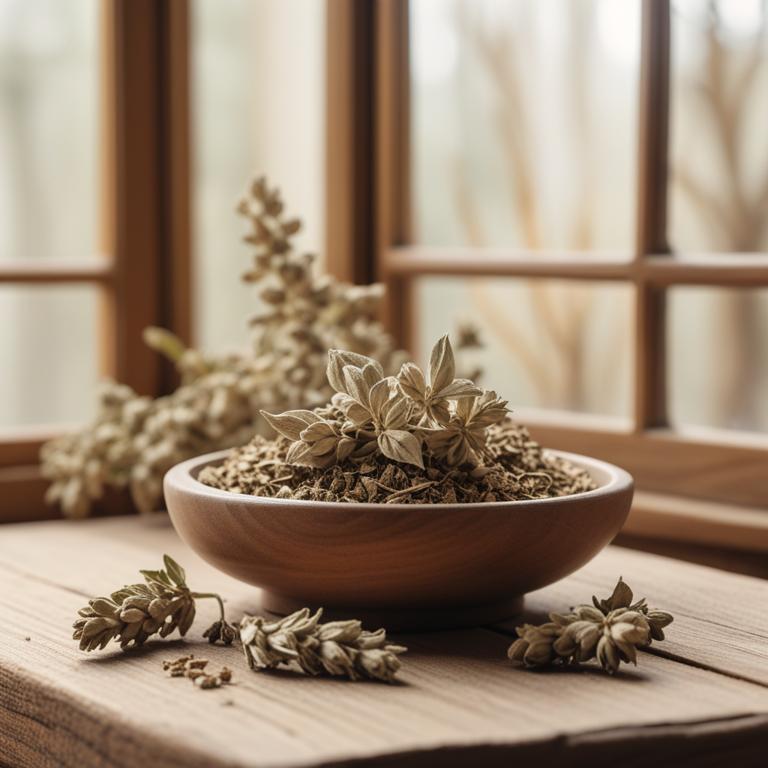
Hypertension and Herbal Remedies: Causes and Medicinal Herbs for Treatment
